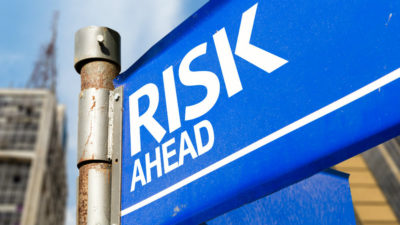Nobody wishes for a market crash, but it can be especially devastating for new investors who don’t know how to handle it. I wrote about three ways to prepare for the next market crash, but there is one more thing investors can do to protect themselves. Actually, this simple strategy will increase the stability and total return of your portfolio.
The strategy? Maintain a cash position in your portfolio.
Cash adds stability in your portfolio
Stocks are volatile in nature, and that can trigger fear, which causes investors to sell at the wrong time. Greed triggers investors to buy at the wrong time. I don’t want to make this sound like market timing.
By that, I mean those times when investors feel an urge to buy after a stock has gone up. Similarly, how many investors sold out in the credit crisis in 2008-09? Many! Otherwise, the market wouldn’t have gone down by 50% in a matter of months.
Cash adds stability to your portfolio. The higher percentage of stocks you own in your portfolio, the higher percentage the cash position you should have, and the more the market rises. Except for the approximate 15% dip in the market in 2011, the market is essentially in the seventh year of rising.
How much cash should you keep?
The amount of cash you keep depends on your comfort with the current market and the assets that you own. As I said before, if your portfolio is mostly stocks, say 80%, then the rest of your portfolio should be cash and cash equivalents, such as short-term GICs or possibly money market funds.
The simplest way, of course, is to place cash in your savings account, but the ideas above give a slightly higher yield.
The higher the market goes, the more cash one should hold. There’s typically a big market drop of over 25% every 10 years and, as I said, the last one was almost seven years ago.
I’m not scaring people out of the market today, but I’m saying it’s not a bad idea to accumulate your dividends and put savings from your job in cash equivalents to build a bigger cash position.
Cash is king in a down market
Cash allows you to buy high-quality companies on the cheap in a down market. Blue-chip dividend stocks traded at dirt cheap, single-digit multiples during the last recession in 2008-09.
On February 27, 2009 Royal Bank of Canada (TSX:RY)(NYSE:RY) closed at $30.92 with a price-to-earnings ratio of 7.3. At the end of February Metro, Inc. (TSX:MRU) closed at $7 with a multiple of 8.4. At the end of April 2009 Canadian REIT (TSX:REF.UN) closed at a multiple of 9.9. These are just some examples of blue-chip dividend stocks that were selling dirt cheap, while their business performance hasn’t deteriorated as much.
In conclusion
Again, I’m not advocating that the market is going to crash any time soon, this year, or next year. However, we know that inevitably, probably without warning, the market will crash at some point in the future.
History indicates that it could be sooner rather than later. As such, all I’m saying is that it’s not a bad idea to start building a bigger cash position today, so that you can take advantage of a down market when it happens by dollar-cost averaging into high-quality, dividend-paying stocks.







